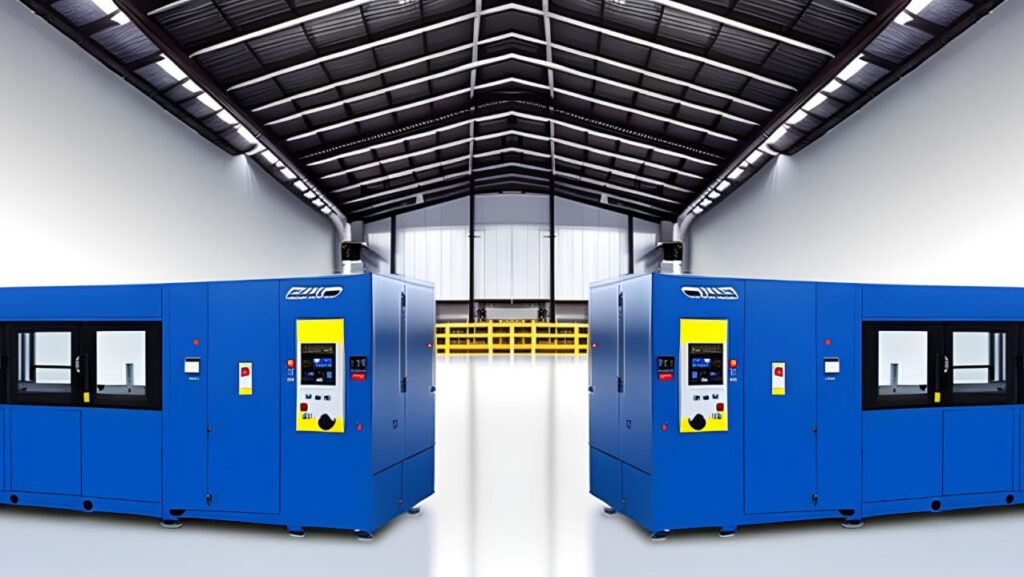In today’s globalized world, the seamless movement of goods is a critical component of business success. Whether you are a multinational corporation, a small e-commerce startup, or anything in between, effective logistics services are essential to ensure your products reach their destination efficiently and on time. From the humble warehouse to a vast network spanning the globe, modern logistics services cater to every need, making it possible for businesses of all sizes to compete on a global scale.

Warehousing
At the heart of the logistics industry lies the warehouse, the unsung hero of supply chain management. Warehouses serve as the physical hubs where products are stored, organized, and prepared for distribution. They come in various sizes and configurations to accommodate the diverse needs of businesses. For small enterprises, a local or regional warehouse might suffice. These warehouses offer cost-effective storage solutions and quicker access to goods for nearby customers. In contrast, global conglomerates rely on massive distribution centers strategically placed around the world to ensure their products are always within reach. The introduction of technology into warehousing has revolutionized the industry. Automated systems, RFID technology, and advanced inventory management software have optimized storage and retrieval processes, reducing human error and increasing efficiency.
Transportation
While warehouses are essential for storage, transportation is the lifeblood of logistics. Getting products from point A to point B, whether it is across town or across continents, requires a well-coordinated system of transportation services. Local and regional logistics often involve trucks and vans for short-distance deliveries, while long-haul trucking, rail, sea, and air transport handle the broader spectrum of needs. Each mode of transportation has its own advantages and are selected based on factors such as distance, cost, urgency, and type of goods being transported. Furthermore, the advent of technology has made real-time tracking of shipments possible. GPS, telematics, and IoT sensors allow businesses and customers to monitor the location and condition of their goods throughout the journey. This not only provides peace of mind but also enables quicker responses to any unforeseen disruptions.
Freight Forwarding and Customs Services
Expanding beyond national borders requires specialized services such as freight forwarding and customs brokerage. Freight forwarders act as intermediaries between shippers and carriers, coordinating the movement of goods across international boundaries. They handle documentation, customs compliance, and the intricacies of shipping routes and regulations. Customs brokers are experts in navigating the complex customs procedures of different countries. They ensure that goods clear customs smoothly, minimizing delays and ensuring compliance with import/export laws. Without these services, international trade would be a labyrinth of paperwork and red tape.
Reaching the Customer
The journey of a product does not end when it arrives in a country it concludes when it reaches the customer’s doorstep. The express trucking services specialize in the final leg of the supply chain, making sure products are delivered accurately and on time to the end user. Last mile delivery is perhaps the most critical phase for customer satisfaction. E-commerce giants have raised the bar, offering same-day or even same-hour delivery options. This has put pressure on logistics companies to innovate and streamline their last mile operations. Many have turned to drones, autonomous vehicles, and crowd sourced delivery models to meet these evolving demands.
 This approach not only guarantees safe and effective results but also ensures a pain-free and relaxing experience for users of all skin types. What sets IllumiWave apart is its unwavering dedication to personalized skincare. We understand that every individual’s skin is unique, and as such, one-size-fits-all solutions fall short of delivering the desired results. IllumiWave’s range of devices is tailored to cater to various skin types and concerns, ensuring that each user receives a customized treatment plan that addresses their specific needs. Whether you are looking to combat the signs of aging, clear acne-prone skin, or simply maintain your youthful radiance, IllumiWave has a solution that is right for you. But IllumiWave’s commitment to your beauty journey extends beyond its cutting-edge technology. We believe that true beauty is an amalgamation of not just external factors but also internal well-being. To this end, we offer a holistic approach to skincare, emphasizing the importance of a healthy lifestyle, a balanced diet, and a positive mindset.
This approach not only guarantees safe and effective results but also ensures a pain-free and relaxing experience for users of all skin types. What sets IllumiWave apart is its unwavering dedication to personalized skincare. We understand that every individual’s skin is unique, and as such, one-size-fits-all solutions fall short of delivering the desired results. IllumiWave’s range of devices is tailored to cater to various skin types and concerns, ensuring that each user receives a customized treatment plan that addresses their specific needs. Whether you are looking to combat the signs of aging, clear acne-prone skin, or simply maintain your youthful radiance, IllumiWave has a solution that is right for you. But IllumiWave’s commitment to your beauty journey extends beyond its cutting-edge technology. We believe that true beauty is an amalgamation of not just external factors but also internal well-being. To this end, we offer a holistic approach to skincare, emphasizing the importance of a healthy lifestyle, a balanced diet, and a positive mindset.